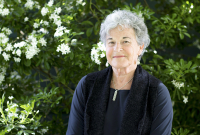Support strong Canadian climate journalism for 2025
B.C. communities large and small are suffering devastating losses as deaths from toxic street drugs reached an all-time high with 2,224 people dying from overdoses in the province last year.
Every health authority saw a record loss of lives in 2021 as an average of six people died each day from toxic drugs, said B.C.’s Chief Coroner Lisa Lapointe on Wednesday, and communities across Vancouver Island were no exception.
“This public health emergency has impacted families and communities across the province and shows no sign of abating,” Lapointe said in a statement.
A total of 327 people died in the Island Health region last year — up from 271 deaths in 2020. The Greater Victoria Area saw the most deaths in 2021 where 130 people died, followed by Nanaimo with 50 deaths and Comox Valley at 35.
While the highest numbers of toxic drug overdoses occurred in Vancouver Island’s urban centres, a number of rural communities saw some of the highest death rates.
The Port Alberni/Clayoquot local health area (LHA) — where 21 people died — had the highest death rate of Island Health’s 14 LHAs, with a rate of 62 deaths per 100,000 people in 2021.
Greater Campbell River LHA, which includes Quadra and Cortes islands, saw 26 people die from toxic drugs, the second-highest overdose death rate at 55 per 100,000 people in 2021 — up from a rate of 32 in 2020.
The Greater Victoria LHA’s rate was the third-highest with 52, while Island Health as a whole experienced a death rate of almost 38 in 2021 — up from almost 32 in 2020.
The illicit drug supply is increasingly toxic, with fentanyl detected in 83 drug samples involved with overdose deaths, according to the coroner’s office.
However, benzodiazepines or “benzos,” a sedative class of drugs, are increasingly finding their way into the toxic drug supply, posing additional danger because they are more resistant to naloxone, which is used to revive people who are overdosing, Lapointe said.
Lapointe again reiterated the urgent need for an easily accessible safe supply of prescribed alternatives to toxic street drugs, which contain a deadly and unpredictable mix of substances.
"We need decision-makers at all levels to recognize and respond to this public health emergency with the level of urgency it demands," Lapointe said, noting governments’ willingness to act decisively during the pandemic saved lives during that parallel public health crisis.
“We need to provide people with access to the substances they need, where and when they need them,” she said.
“Time has run out for research and discussion. It is time to take action.”
Guy Felicella, a peer clinical adviser with Vancouver Coastal Health, said every one of the deaths associated with toxic supply was preventable as authorities failed to learn from their mistakes.
“Change nothing and nothing changes,” Felicella said. “This approach is killing and continues to kill people.”
The province has applied to the federal government to decriminalize personal possession of illicit drugs to reduce overdoses and the harms and stigma experienced by people who use drugs.
But Vancouver Island NDP MPs are also trying to drum up support for a federal private member’s bill to decriminalize the possession of small amounts of drugs, eliminate criminal records for similar convictions, and improve access to safe supply.
The bill has been tabled by Courtenay-Alberni MP Gord Johns, who is also federal NDP critic for mental health and addictions.
“The data released from the B.C. coroner's office is absolutely staggering and heartbreaking,” Johns said in a statement Wednesday.
The federal government has failed to act on the toxic drug crisis in which 20,000 people have died since the Liberal government came into power, Johns said, adding there was little in the newly created Ministry of Mental Health and Additions mandate that would suggest any radical change of course.
“The Liberals need to urgently address this emergency, so no more lives are needlessly lost.”
North Island MP Rachel Blaney, whose riding includes the communities of Campbell River, the Discovery Islands and Powell River, is backing her colleague’s bill.
People who use drugs shouldn’t be treated like criminals, and the toxic drug crisis needs a health-focused approach that provides better access to harm reduction and treatment, Blaney said in a statement Monday.
It’s obvious the current approach to dealing with the public health crisis isn’t working, she said.
“I’ve walked with parents and heard heartbreaking stories of loss in our communities,” Blaney said.
“No family should have to go through that.”
Rochelle Baker/Local Journalism Initiative/Canada's National Observer






Comments